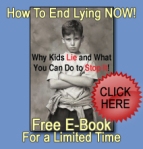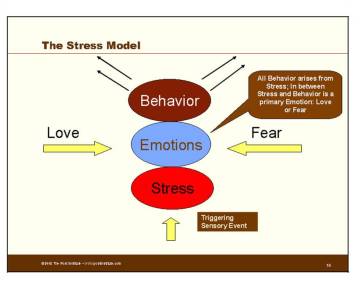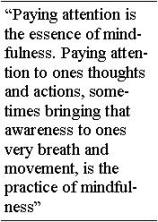“Let Me Think About It. I Will Let You Know” – Bryan Post
I see this again and again in my life and the parents we meet. “NO”. When our children ask us for something, we parents are so caught up in our own fears that an almost instinctive (almost but not really) response to a child’s request is NO. Then begins the struggle, especially from our highly reactive kids, to justify, authoritize, dominate, overpower, and eventually say something like….”Now, because you have been so argumentative, ugly, mean, disrespectful and child-like, not only are you not going to get what you asked for, but I will now take away x,y and z, AND you won’t see the light of day till you are at least 35 years old!”
We expect our RAD kids who have little ability to reason things out – age not withstanding – yet we have no problem reacting out of our own fear/stress in an unreasonable way, without apologizing to our children just because we are the parents and if we do not consistently stand by our word (mo matter how unfair, reactive, over-reactive, unreasonable, il-logical) we will do our children an injustice and lead them to think that they can then manipulate us since NO may not mean no in the end – if they fight hard enough or are clever enough to get around us.
Bryan has suggested as a response (not a reaction) to a request is simply to say, “let me think about it. I will let you know”. Whew. Now, I actually get to “think” about it rather than “react” to it. This is so big that it could possibly change the future of the world. Really. And in that “thinking” about it, we can:
- Mindfully consider our own fear vs. the reality of what is being presented;
- Mindfully consider the request outside of the “do they DESERVE this privilege” and perhaps realize that DESERVING is just another conventional behavior modification, reward and punishment control/dominate approach. Many of our special kids will mostly NEVER deserve privileges when seen in the conventional way. They often just do not have the neural or psychological development used to judge such deservingness. So why hold them to an unreasonable standard. If you have any doubt, consider their past behaviors. Enough said.
- Mindfully consider our child’s needs vs. our own needs (since I don’t want to have to worry about you, I won’t let you go…or I don’t want you to fail)
- Mindfully consider that this may be not an “opportunity for a child to earn trust or prove themselves by not messing up” – but simply a learning experience that can occur whether they fail or succeed. Either way, they win. Both ways we win.
- Mindfully consider what your spouse would think – and then talk it out with them rather than be afraid that they might not like it if we said yes – so choosing the easy path of no.
- Mindfully consider a whole host of new variable, thoughts, feelings and emotional baggage that we have been carrying for years and heretofore have been unconscious of and allowed them to control us.
- Mindfully consider that many of our children just simply do not, may not ever or at least for a long while have what it takes to not disappoint us regularly.
The philosopher Aldous Huxley said that experience is not what happens to us, it is what we do with what happens to us. We parents cannot really control what happens to our children. We can however, influence what they do what with what happens to them with our love, our compassion, our wisdom and often just by our presence. These may turn out to be the greatest things we can give our children – and the world. And it may come more often if we learn to just say YES.
An article I read recently about Mindfulness training for incarcerated youths quoted one of the instructors, Vinny Ferraro, teacher-training director of the program who said “If you’re coming in there to teach them something, then forget it. But if you’re coming in there to be with them, to sit in the space with them and be with them in an authentic way, where you’re actually modeling what you’re asking them to do, then the sky’s the limit.”
To read article mentioned here, go to http://khyentsefoundation.com/2012/03/mba-projects-mindfulness-training-for-incarcerated-youth-yields-effective-results/
“Fear is the path to the dark side. Fear leads to anger. Anger leads to hate. Hate leads to suffering.”
— Master Yoda- Star Wars Episode I
Have a Calm and Peaceful Day.
David
 Have you read Bryan Post’s FREE e-Book How to End Lying Now: Why Kids Lie and What You Can Do to Stop It? Post offers a radical new understanding of difficult children – adopted, foster, diagnosed, biological, or grandchild. The Post Institute has helped families and professionals move from fear to love in their struggles with challenging behaviors such as defiance, disrespect, self-mutilation, cutting, hoarding or gorging food, stealing lying and more! This free book can get you started – see your child’s behaviors in an entirely different light and learn how to apply this approach. A truly love based family-centered model for many behaviors and diagnoses.
Have you read Bryan Post’s FREE e-Book How to End Lying Now: Why Kids Lie and What You Can Do to Stop It? Post offers a radical new understanding of difficult children – adopted, foster, diagnosed, biological, or grandchild. The Post Institute has helped families and professionals move from fear to love in their struggles with challenging behaviors such as defiance, disrespect, self-mutilation, cutting, hoarding or gorging food, stealing lying and more! This free book can get you started – see your child’s behaviors in an entirely different light and learn how to apply this approach. A truly love based family-centered model for many behaviors and diagnoses.
 Post Daily Parenting Inspiration and more on Facebook! Make sure you stop by our Facebook page often for Daily Dose of Parenting Oxytocin, Special Discounts, Offers, Videos, News and whatever else we can pass along to our committed parents and professionals. This is a place to learn, play and interact with other committed parents and professionals and WIN prizes!
Post Daily Parenting Inspiration and more on Facebook! Make sure you stop by our Facebook page often for Daily Dose of Parenting Oxytocin, Special Discounts, Offers, Videos, News and whatever else we can pass along to our committed parents and professionals. This is a place to learn, play and interact with other committed parents and professionals and WIN prizes!
 Parenting Attachment Challenged Children “Hands-On” Home Study Course
Parenting Attachment Challenged Children “Hands-On” Home Study Course
Want Serious Help — Seriously? This may be the answer you have been praying for. There really can be peace in the family with your child. Bryan Post‘s Powerful new program is now available and includes the new 5 Hour Course on CD-Rom to accompany the workbook and 6 Hours of Video. This new program provides all the tools and understanding you need in order effectively parent your challenging kids. The home study course for parenting the child with challenging behaviors is life changing and is only meant for the serious parent or professional This course with accompanying workbook and the 5 hours of course material on CD-Rom to follow along will make the concepts easy to work with. You will have step-by-step instructions on how to create a therapeutic healing environment for children with trauma histories. If nothing else works for your child, this may be the training program you have been praying for. This best-selling package will start you on the road to restoring peace in your family and give you a running start! You will never know unless you try this, but you might always wonder.
For more of Bryan Post’s unique truly love based family centered approach for managing children with challenging behaviors, visit his websites:
- www.postinstitute.com – A Radical New Understanding of Difficult Children resource site. Lots of free stuff and training materials.
- www.reactiveattachmentdisorderparenting.com – The Parenting Course for parents & professionals with RAD kids and many other challenging behaviors and diagnoses.
- www.oxytocincentral.com – Resource site for the latest info and research on Oxytocin, the hormone responsible for attachment and bonding.
- www.postinnercircle.com – Where Desperate Parents Come for Solutions and Support. You Are Not Alone. If there were a way to personally interact with Bryan Post on a regular basis, would you be interested? If there were a community of other parents and professionals who wanted peace and harmony in their families as much as you, and you could learn from them, would you be interested in joining them?
If you’d like to receive a FREE copy of our Post Parenting Toolbox each week, sign up on our home page. Click on the image here to see the latest Parenting Toolbox.













 and purchase this ground breaking book
and purchase this ground breaking book